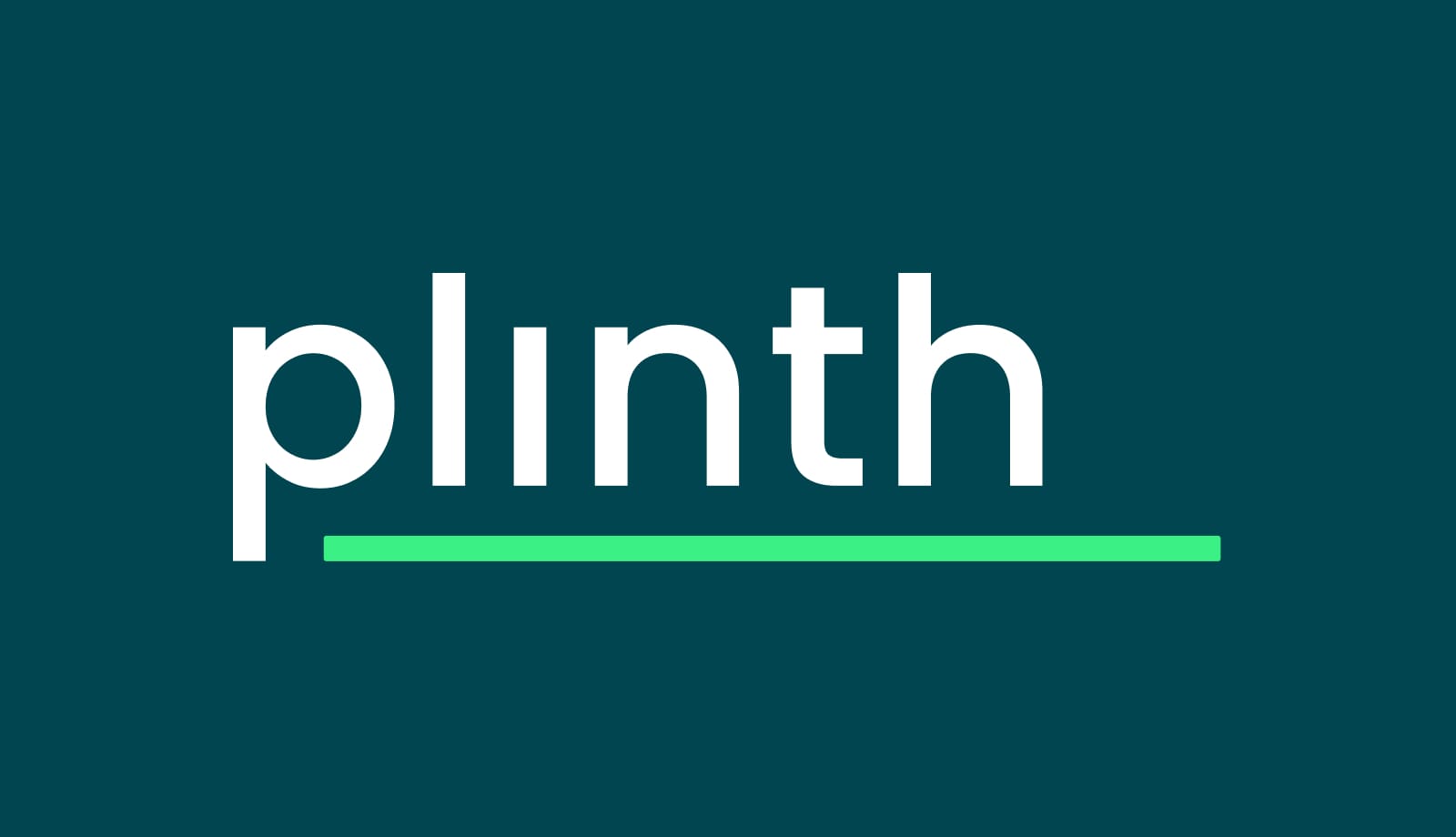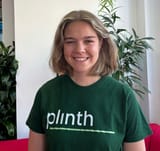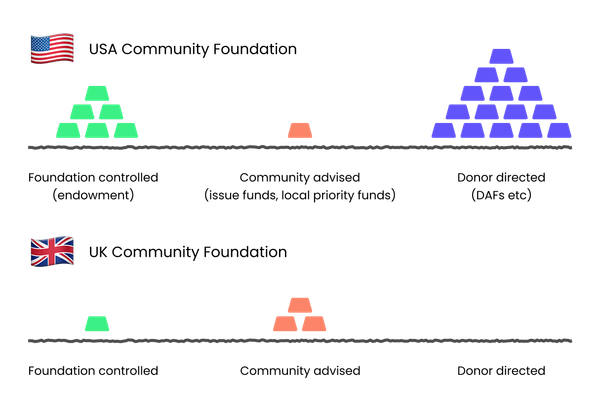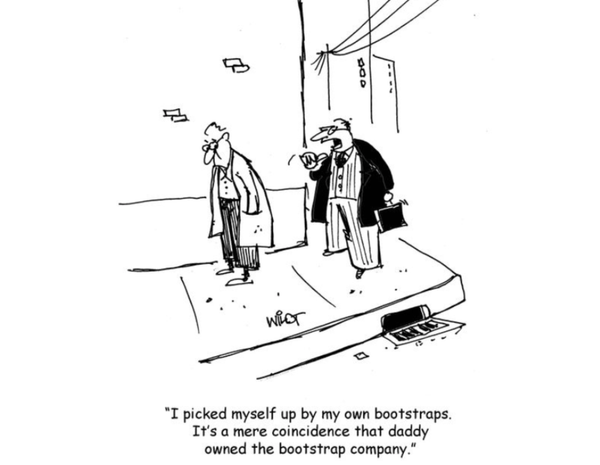Ethics, Efficiency and Efficacy: AI advances in grantmaking
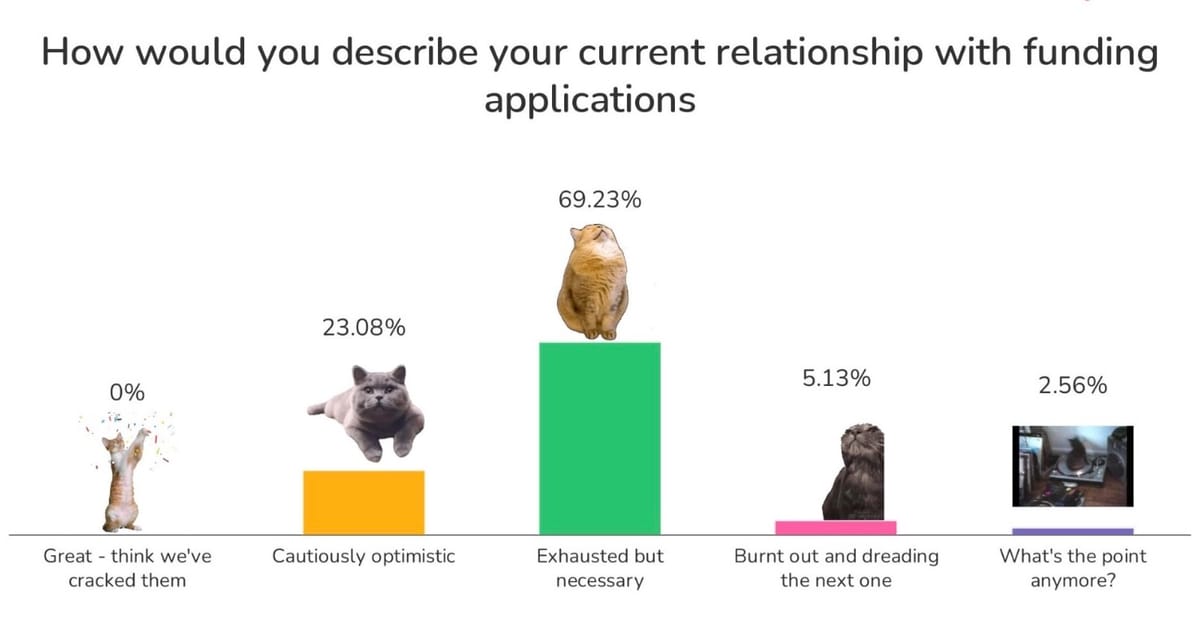
The increasing use of AI has raised new ethical questions in the grantmaking sector. Foundations are concerned about how AI implementation might affect their organisational integrity.
Data protection, bias, AI decision-making and sustainability. These are usually the major topics in question. Whilst the concern is legitimate, the answers to these questions are more straightforward than it seems (see below for FAQs).
There is a tendency for these “buzz words” to overshadow the ethical conversations surrounding AI. The narrative tends to be negative and, in our opinion, rarely nuanced. At Plinth, a question our team and the 30+ funders who use our AI Grant Management Tool have been discussing is, how could AI lead to positive ethical advances in grant-making?
To learn firsthand about the grantmaker experience, we launched our own mini foundation and gathered around 160 people from across the sector to discuss what an ideal foundation would look like. Two major ethical issues emerged: power imbalances and inaccessibility.
Power Imbalances
The grantmaker-grantee relationship is fraught with power imbalances. Grantmakers have huge influence over the charitable sector's income and which organisations receive financial security. This is true now more than ever, as the public have declined as an income source to 25%, from 54% in 2020/21.
Grantmakers must ensure their funding goes towards worthwhile projects, however, from the charities we spoke to, this is often done in a way which is onerous and inflexible. Grants are offered on a project basis, but inevitably projects evolve or more pressing needs emerge. Yet charities face funding withdrawal if KPIs aren't met. What they want is a collaborative approach, flexibility and personal relationships.
How can we rebalance this power dynamic? We believe collaboration and flexibility are achievable if grantmakers have the bandwidth. However, recent years have seen tremendous pressure on grantmaking organisations. According to the ACF's most recent report, applications have increased significantly, in some cases by 100-400%. With the explosion of AI-generated grant applications, staff are overstretched, spending hours sifting through generic, often ineligible applications.
Plinth believes the solution lies in building capacity. We've built AI Grant Management tools that conduct due diligence checks, assess eligibility, and generate bespoke feedback for every applicant. Our partners report the tool saves approximately 50-75% in admin time, enabling grantmakers to step into real, personal relationships with grantees. We want to see partnerships of trust where grantmakers and grantees collaborate to make their joint aims achievable and actionable. And with more capacity, grantmakers could respond quickly to pressing needs rather than being weighed down by lengthy decision-making processes.
Through alleviating strain on Grant Managers and Officers, we think that this power dynamic can be rebalanced to enable more open communication between grantmakers and grantees. When staff are no longer shackled to computer screens, paradoxically, technology frees up time for human connection and relationships. Flexibility is easier when we aren’t simply communicating through application forms, but allowing the admin process to just be one step along the process in the grantmaking relationship.
Inaccessibility
Whilst many foundations offer open invitations, application success depends on well-evidenced, well-written submissions. Unfortunately, many organisations lack the time or funds to put together strong applications - often those who need funding most. NCVO attests that small and micro-organisations receive only 4% of the sector's income despite comprising 80% of the sector. Super-major organisations (income over £100m) received a higher share of their income from the voluntary sector (23%) of which a significant proportion is grants.
Our foundation launch revealed that organisations repeatedly struggling for funding include small organisations, CICs, those awaiting charitable status, and faith groups - all regularly unable to apply for mainstream funding. To apply for charitable status, organisations must have at least £5,000 in annual income. According to NCVO, in 2020, 15,000 UK organisations had £0 income, accounting for 9% of the sector. The most difficult funding to secure is what's needed to get organisations off the ground: salaries, core operational costs, and unrestricted funding.
From a funder's perspective, charitable status and significant income provide automatic due diligence, ensuring trust in where money goes. Yet we want opportunities for small organisations meeting new pressing needs to diversify funding distribution beyond legacy charities.
Plinth is addressing this in two ways. Firstly, we make our basic CRM available free to anyone. The CRM gathers data on charitable activities and automates impact measurement, helping small organisations make their case to funders.
Secondly, we're trying to make the applicant experience as seamless as possible using AI. Applicants can upload previous grant applications into Plinth forms, and AI adapts answers to suit new questions - eliminating the need to employ grant writers for multiple applications. We've created an AI website review checker providing real-time feedback on funding readiness. We've also enabled translation, allowing people to apply in their own language with automatic translation back to English for funders.
A Hopeful Approach to AI
Amidst doom and gloom surrounding the AI revolution, we're trying to have a more hopeful attitude at Plinth. Whilst recognising that AI could lead to negative ethical implications, we're making the case that AI can be used for good - not just for technological advances but ethical ones too. AI improves efficiency and enables insights so funds can be used more effectively. In the charity sector, we want to help people spend less time finding funding and more time providing frontline impact.
As we step into the shoes of the funder, no doubt our utopian dreams of the “ideal foundation” will be met with the harsh reality of what it means to make these crucial grantmaking decisions. Already we’ve reached nearly 100 applications, for what is a very limited fund. But we’re going to at least attempt to do things differently and we’ll let you know how it goes!
Using our tools, we hope grantmakers can balance the dial: become partners instead of distributors, be accessible rather than gatekeepers, and act with speed to become organisations relied upon for immediate help. Whilst negative ethical impacts of AI should be considered, the positive ethical opportunity needs greater attention.
FAQs
Is it data safe when using AI? If you're using the paid or pro version, most AI companies offer the option to turn off their ability to access your data and use it to train large language models. To guarantee data safety, it's best to contact the AI company directly to agree on a data protection agreement. At Plinth, we have individual agreements with all AI companies we use to ensure data is protected.
Is AI biased? Yes. AI is inherently biased and it's virtually impossible to remove this completely. Therefore, it's important to use AI to surface information rather than delegating decision-making to AI. At Plinth, we've pre-programmed the AI to ask focussed questions that generate accurate results and deliver reliable information, rather than opinions.
Will AI take jobs? It will almost certainly replace some jobs, but if stewarded correctly, we hope it will transform them to be more creative. This is why a human-in-the-loop approach is important, where humans use technology as a tool to assist in processes. We hope to see upskilling across all sectors so workers can maximise capacity with AI rather than being replaced entirely.
What about the environment? AI is 500-1000 times more efficient than two years ago. An average query uses 0.34Wh - roughly 0.5 seconds of a kettle boiling. AI is usually better for the environment than reading on a laptop screen. For our sector, time saved on admin through platforms like Plinth is actually more energy efficient, as without it, admin tasks can take hours or even days, consuming far more energy.
Work Cited:
Association of Charitable Foundations. Foundations in Focus: A narrative summary of UK Charitable Foundations’’ Grant-making in 2023–2024. October 2025.
The National Council for Voluntary Organisations, UK Civil Society Almanac 2022: Data, trends and Insights. 18 October 2022; UK Civil Society Almanac 2023: Data, trends and Insights. 12 October 2023. UK Civil Society Almanac 2024: Data. Trends. Insights.
Image taken from interactive slides engaged with by attendants of the Plinth Foundation Launch, 06/10/25 using Aha Slides.
